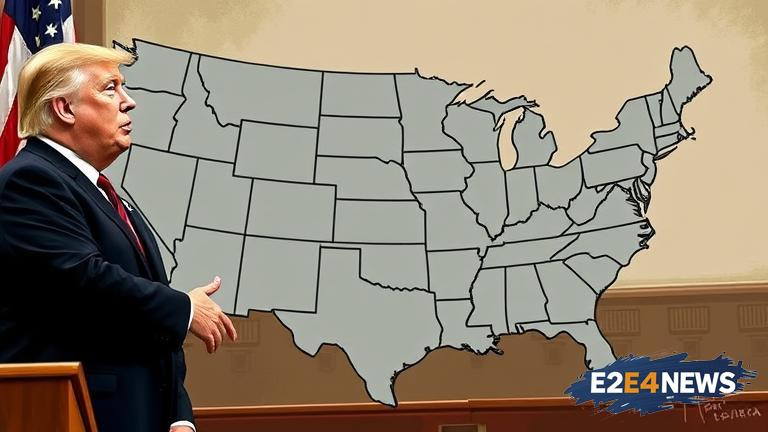The Trump administration has taken a significant step in its efforts to reform the immigration system by terminating the contracts of immigration court judges in ten states. This move has been met with criticism from various quarters, with many expressing concerns about the potential consequences for immigrants and the overall fairness of the immigration process. The judges who were let go were responsible for presiding over cases involving asylum seekers, deportation proceedings, and other immigration-related matters. The decision to fire these judges has been seen as part of the administration’s broader efforts to tighten border security and enforce stricter immigration policies. The move is likely to have a significant impact on the immigration system, particularly in the ten states where the judges were based. These states include California, New York, Texas, and Florida, among others. The terminated judges were employed by the Executive Office for Immigration Review (EOIR), which is responsible for overseeing the immigration court system. The EOIR has stated that the decision to fire the judges was made in order to improve the efficiency and effectiveness of the immigration court system. However, critics argue that the move is a politically motivated attempt to stack the courts with judges who are more sympathetic to the administration’s immigration policies. The firing of the judges has also raised concerns about the potential for bias and unfairness in the immigration system. Many of the judges who were let go had years of experience and were well-respected in their field. The decision to terminate their contracts has been seen as a blow to the independence and integrity of the immigration court system. The Trump administration has been facing criticism for its handling of immigration issues, and this move is likely to further fuel the controversy. The impact of the decision will be closely watched in the coming months, particularly in the ten states where the judges were based. The administration’s efforts to reform the immigration system have been met with resistance from various quarters, and this move is likely to be challenged in court. The firing of the immigration court judges is a significant development in the ongoing debate over immigration policy, and its consequences will be felt for years to come. The decision has also raised questions about the role of the EOIR and its relationship with the Trump administration. As the immigration system continues to evolve, it is likely that this move will be seen as a key moment in the ongoing struggle over immigration policy. The Trump administration’s efforts to shape the immigration system have been marked by controversy and criticism, and this move is likely to be no exception. The impact of the decision will be felt not only in the ten states where the judges were based but also across the country, as the immigration system continues to be a major point of contention in American politics.
